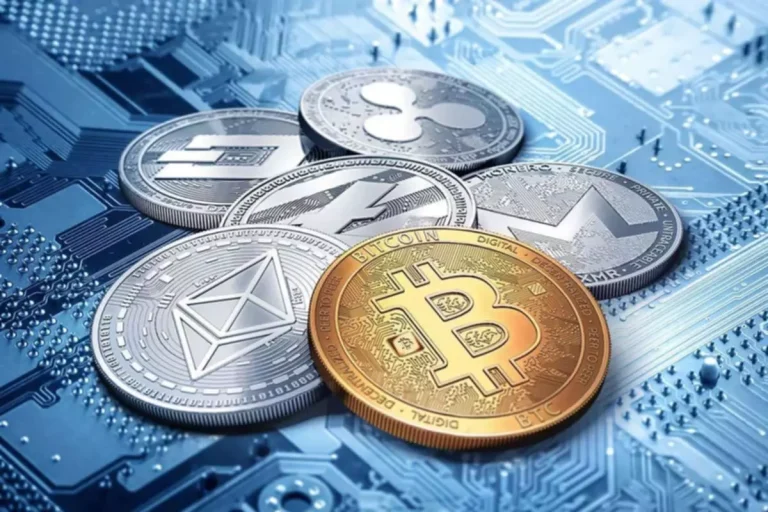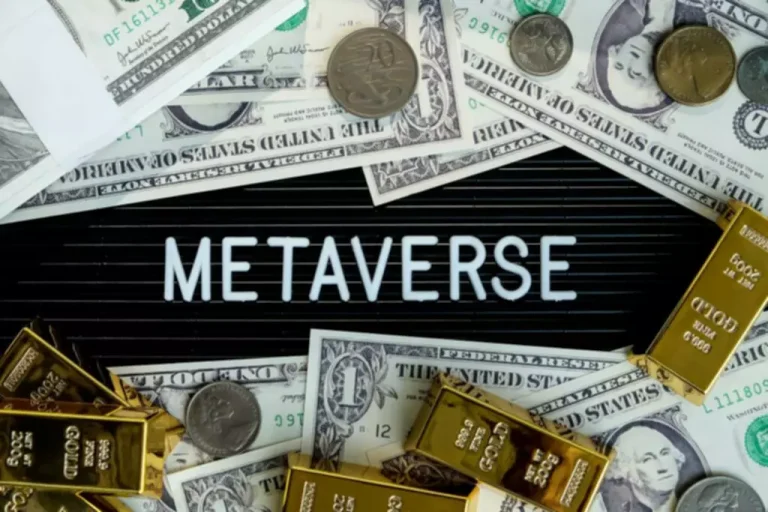The future might see higher integration of AMM models with conventional finance, potentially resulting in new hybrid models that mix the best options of both worlds. The major advantage is the transparency in price formation and depth of the market. However, it depends heavily on the presence of patrons and sellers to take care of liquidity. Order book systems and Automated Market Makers (AMMs) are two distinct mechanisms for facilitating trades within the crypto markets. PMMs work by adjusting their costs in response to real-world market tendencies and expert predictions.

Besides, market makers who stored these books had been capable of manipulating the records. Automated market makers were capable of solve these issues and reduce the danger of human error or market fraud. Now that you perceive how liquidity swimming pools work, let’s understand the character of pricing algorithms. Conversely, centralized exchanges (CEXs) use an order guide to match a purchaser with a vendor amm crypto meaning to execute a cryptocurrency commerce at a mutually agreed trade price. Alternatively, anyone can carry out a special deposit to fund the AMM as if it had been new. It would take a major price shift to soak up nearly all of liquidity so nearly all of capital within the AMM mannequin is deployed inefficiently, essentially doing nothing.
Yes, AMMs (Automated Market Makers) are implemented as sensible contracts on a blockchain platform. These sensible contracts facilitate the automated swapping of assets between customers and pools without the need for an intermediary or order e-book. AMMs’ algorithmic protocols and liquidity swimming pools have replaced conventional order book fashions, providing a decentralized and environment friendly trading expertise. While AMMs include certain challenges and limitations, their advantages outweigh these concerns, making them a significant part of the DeFi ecosystem. AMMs operate on decentralized exchanges, which do not rely on intermediaries or central authorities to execute trades. This allows permissionless buying and selling, where anyone with an web connection can participate in shopping for and selling crypto property.
What Are The Completely Different Automated Market Maker (amm) Models?
What sets PancakeSwap aside is its day by day lottery function, where customers can put their CAKE into a pool for a chance to win huge prizes. This provides a component of excitement and gamification to the platform, making it appealing to many traders. There are projects that use hybrid approaches, combining elements of different AMM DeFi models to optimize for particular asset traits. Some operate as a mix of CPMM and CSMM, whereas others incorporate a customizable utility operate to maintain stability within a pool.

These tokens represent their share of the pool and can be redeemed later for his or her portion of the pool plus any accrued charges. Automated Market Makers (AMMs) primarily concentrate on the trade of crypto-to-crypto pairs within the DeFi ecosystem. The structure of AMMs is inherently designed for tokenized property, which seamlessly integrate with the underlying sensible contract know-how. These swimming pools facilitate buying and selling by mechanically executing trades primarily based on preset algorithms, embodying what does AMM stand for.
Problems Of First-generation Amm Models
The pricing mechanism in AMMs, while normally environment friendly, in some circumstances may result in issues like impermanent loss for liquidity providers, particularly in highly unstable market conditions. These pools, filled with different tokens, regulate prices dynamically according to the changing ratios of assets. This system ensures that the pricing is reflective of present market conditions, driven by provide and demand throughout the pool. Liquidity swimming pools are at the coronary heart of AMM platforms like WhiteSwap, functioning because the core mechanism that permits these automated cash makers to facilitate buying and selling by offering liquidity.

In essence, the liquidity pools of Uniswap all the time maintain a state whereby the multiplication of the price of Asset A and the value of B always equals the same quantity. While other kinds of decentralized exchange (DEX) designs exist, AMM-based DEXs have turn into extremely in style, offering deep liquidity for a extensive range of digital tokens. One of the particular issues of the AMM approach to decentralised exchanges is that for very liquid swimming pools a lot of the funds are sat there doing nothing. This is because the majority of the time value strikes in a comparatively slender vary, and the pool will quickly rebalance. If traders buy BTC they diminish that facet of the pool and enhance the pool of USDT growing the relative price of BTC.
Key Differences From Traditional Market Making
Traditional market makers are usually corporations or individuals who stand prepared to buy and promote assets at consistent costs, profiting from the unfold between shopping for and selling costs. Those contributing to the liquidity pool can earn passive earnings through trading fees. The revenue is calculated based on the proportion of their contribution to the pool. Uniswap, one of the best-known DEX platforms, uses this mannequin of liquidity contributions and asset positive aspects. With an AMM, there is not any need for manual worth setting as the liquidity pool takes care of it automatically.
The loss solely becomes everlasting when the LP withdraws the stated funds earlier than the price ratio reverts. Also, observe that the potential earnings from transaction charges and LP token staking can typically cowl such losses. This means ETH would be trading at a reduction within the pool, creating an arbitrage opportunity.
Thus, AMMs play a pivotal position in driving the market where anyone can contribute to add the liquidy and profit from it. The deeper the liquidity swimming pools, the better swaps can be executed, and the extra wholesome buying and selling activity the market meets. As long as customers are prepared to carry out as liquidity suppliers, AMMs can offer more liquidity than conventional market makers, facilitating trades between cryptocurrencies at a reasonable market value. If an AMM doesn’t have a enough liquidity pool, it could possibly create a large worth influence when traders purchase and sell property on the DeFi AMM, resulting in capital inefficiency and impermanent loss.
What Is Market Making In Crypto?
The trade seems for a purchase order that matches your selling price and fulfills it. On the opposite, AMM exchanges don’t have to have a counterparty on the other finish to facilitate the trade. Instead, you interact directly with the smart contract in a peer-to-contract (P2C) manner. The primary benefits of AMM embody continuous liquidity, democratization of market entry, and reduced dependency on conventional market makers.
With its emphasis on user-friendliness and quick transactions at low fees, it has rapidly gained reputation among traders. Additionally, SushiSwap’s use of good contracts ensures that trades are executed quickly and effectively with out the necessity for a centralized intermediary. Its token, SUSHI, is earned by way of liquidity mining and may additionally be used for voting on governance proposals.
Chainalysis reported that DEFI accounted for $2.3bn of crypto-related crime in 2021. Ethereum’s scaling issues have turn out to be a chance for different chains to compete. The Market Depth metric is commonly described as the volume required to maneuver the worth +/-2%. The higher that volume the larger confidence you’ll be able to have that your trade will not transfer the price away out of your desired entry or exit.
Ethereum is by far the most well-liked chain for DEFI but it has turn into a sufferer of its own success struggling to scale with fees rising to exorbitant ranges. If you would possibly be contemplating using a DEX you should incorporate payment comparability into your decision-making course of. Curve Finance applies the AMM mannequin to Ethereum-based tokens but https://www.xcritical.com/ specifically to low-risk Stablecoin pairs or pairs of cash with equal or related value. This method lays down the basic framework over which totally different AMMs function to maintain up liquidity in decentralised exchanges. Orca is a rising star on the planet of DEXes, centered specifically on the Solana blockchain.
It allows for pools with greater than two types of belongings and uses a weighted geometric imply to keep up balance. This mannequin can offer more flexibility and higher capital effectivity for multi-asset pools. Unlike traditional market-making mechanisms, which depend on order books and human market makers to perform trades, AMMs employ a singular algorithmic strategy. AMMs could make use of off-chain sources like value oracles to offer dependable worth discovery and capital effectivity.
Synthetic assets are a means for AMMs to make use of good contracts to virtualize the AMM itself, making it extra composable. For occasion, a hybrid model can mix the CSMM variant’s capacity to reduce the influence of enormous trades on the complete pool with the CMMM variant’s performance to allow multi-asset liquidity swimming pools. Impermanent loss occurs when the price ratio of pooled belongings deviates from the tokens’ initial values. Liquidity suppliers automatically incur losses if and solely after they withdraw funds during a interval of such fluctuation. The fantastic factor about DeFi is that when conducting a token swap on a decentralized crypto exchange (DEX), customers never need a specific counterparty or middleman.
The term “automated market maker” refers to an asset value that is decided routinely by an algorithm which calculates token shares in a liquidity pool. A required buying and selling pair is taken from liquidity swimming pools — storages of cryptocurrencies on the steadiness of a wise contract. They are provided by platforms’ customers who provide belongings to obtain rewards in exchange. When a commerce is made on a DEX, the transaction payment is distributed between all of the pool members. An automated market maker (AMM) is an autonomous protocol that decentralized crypto exchanges (DEXs) use to facilitate crypto trades on a blockchain. Instead of buying and selling with a counterparty, AMMs enable customers to trade their digital assets towards liquidity stored in good contracts, referred to as liquidity pools.
